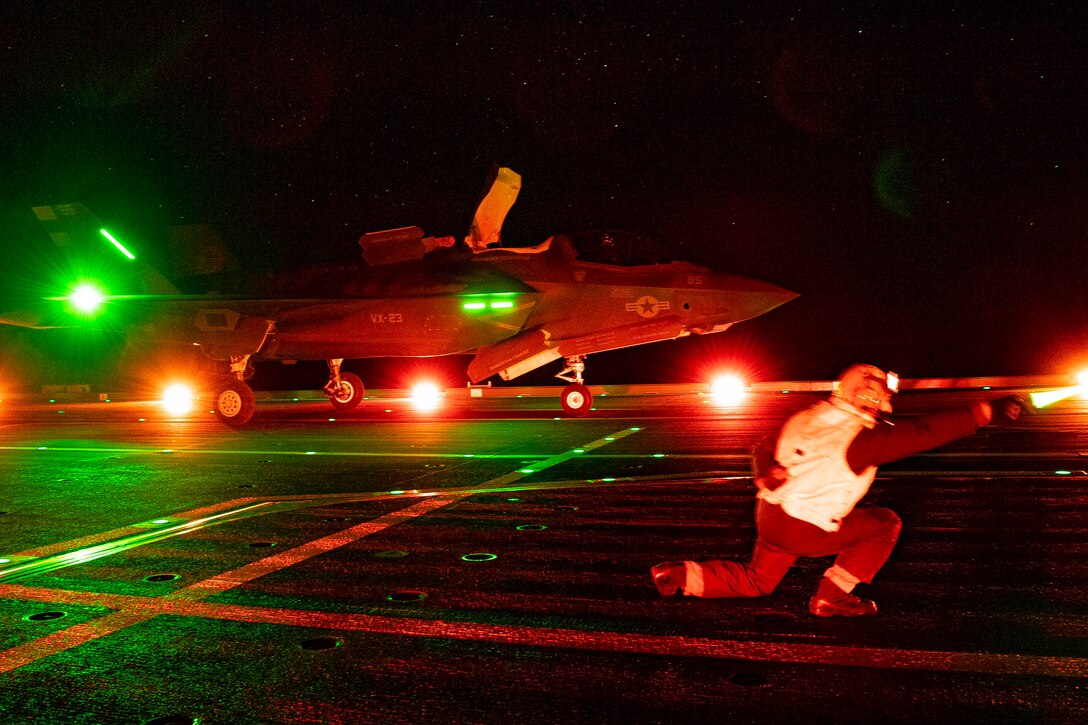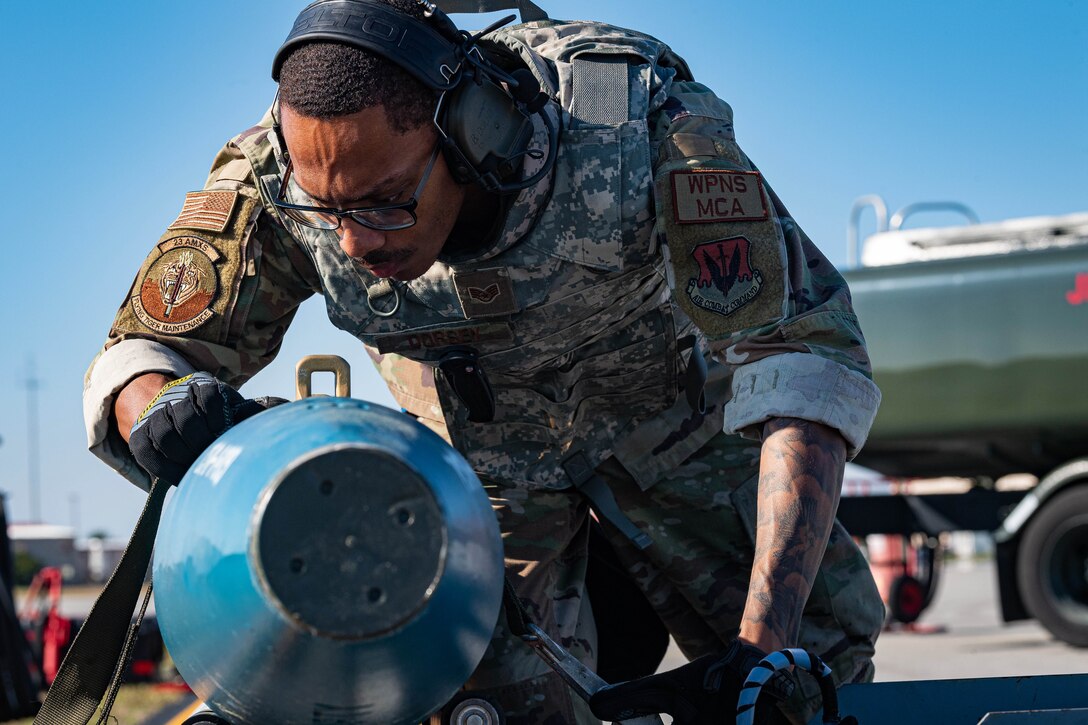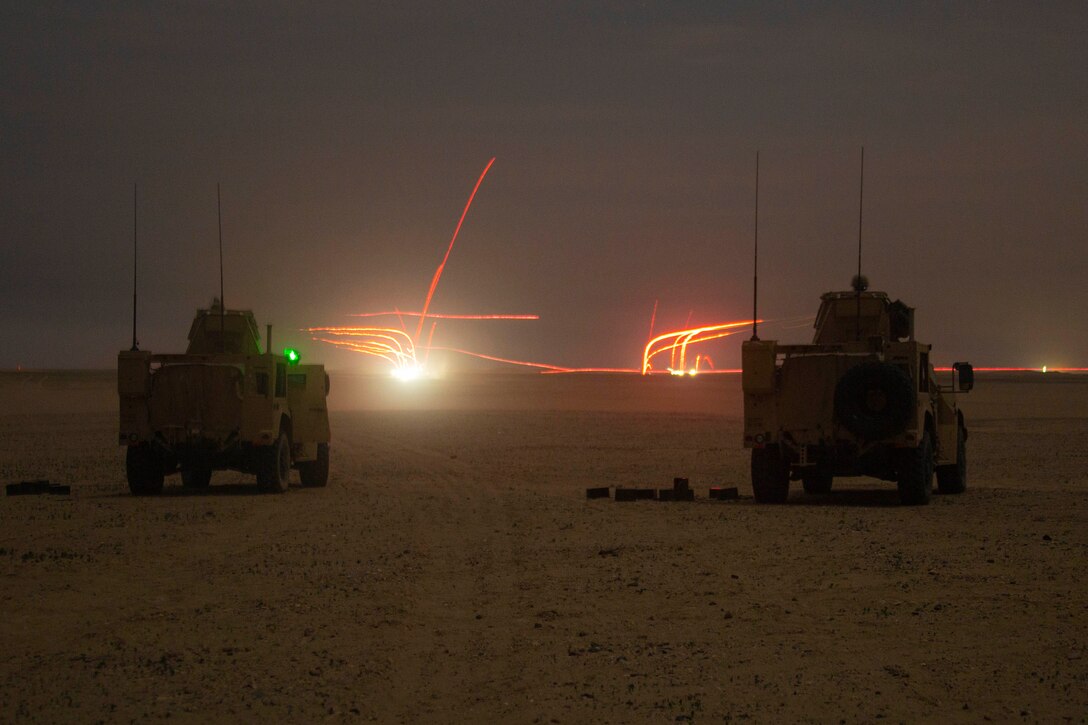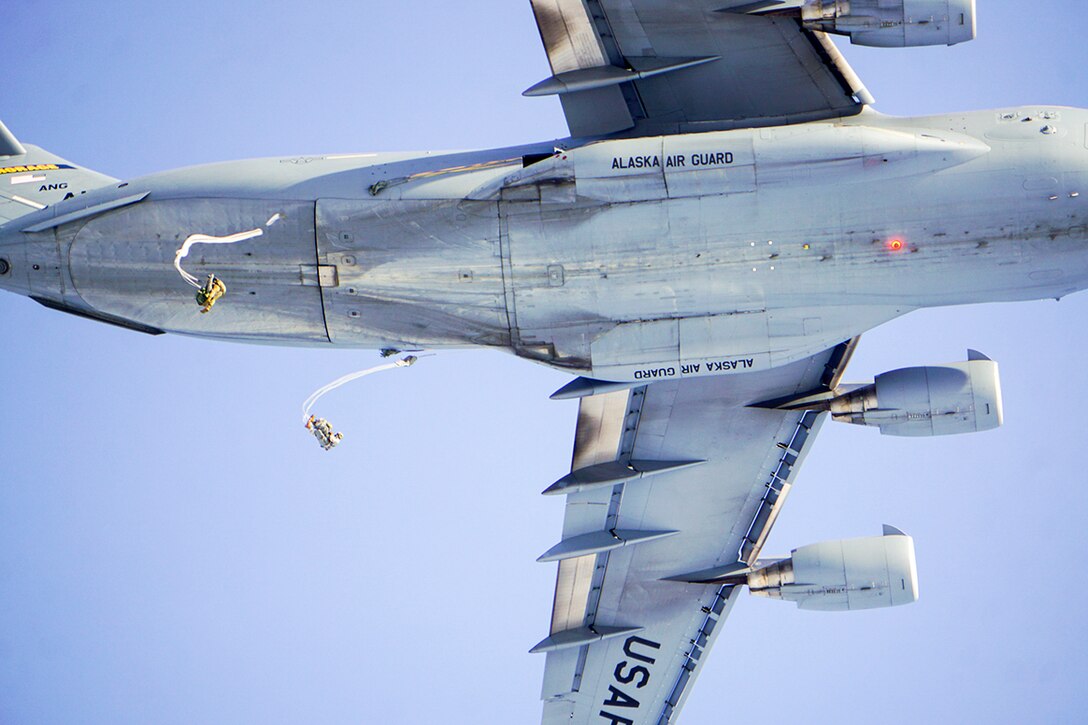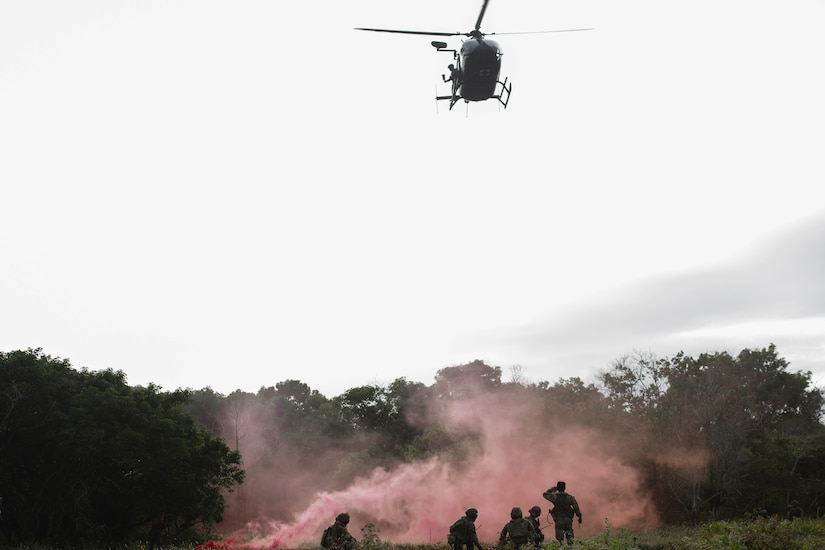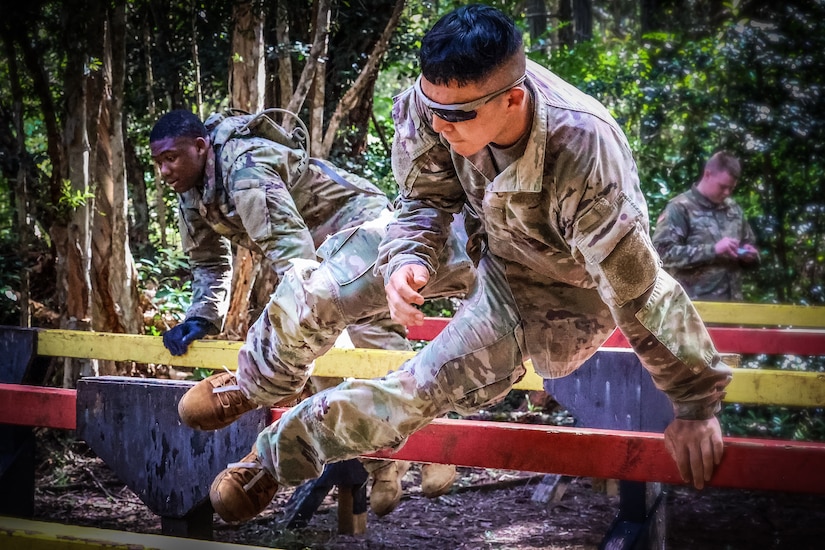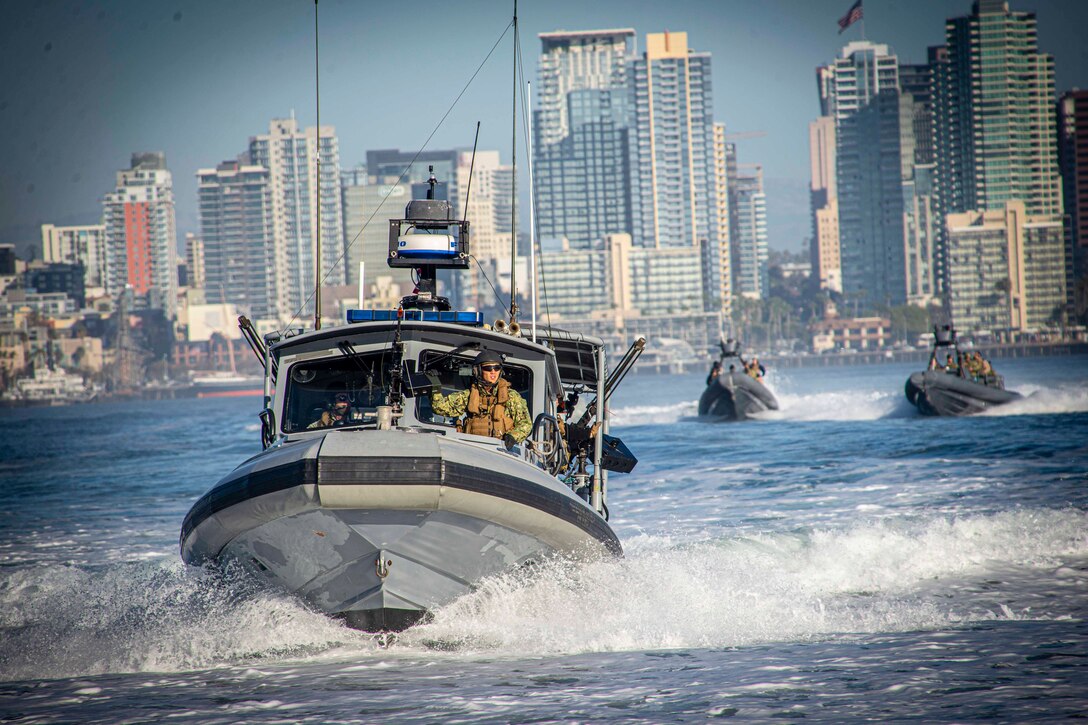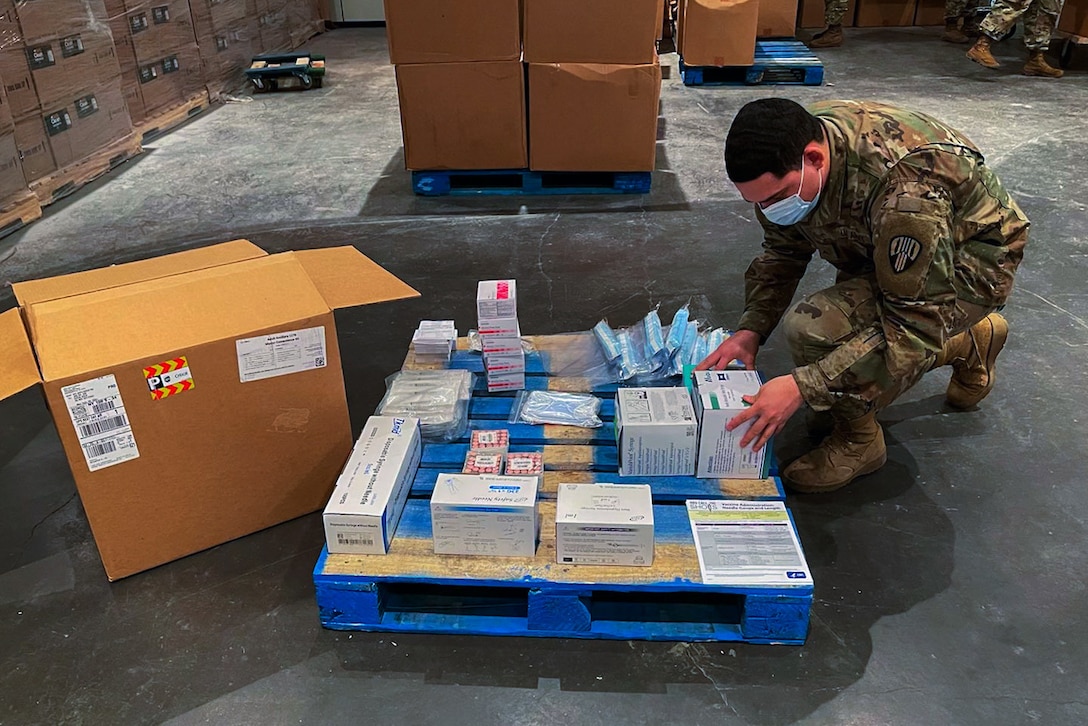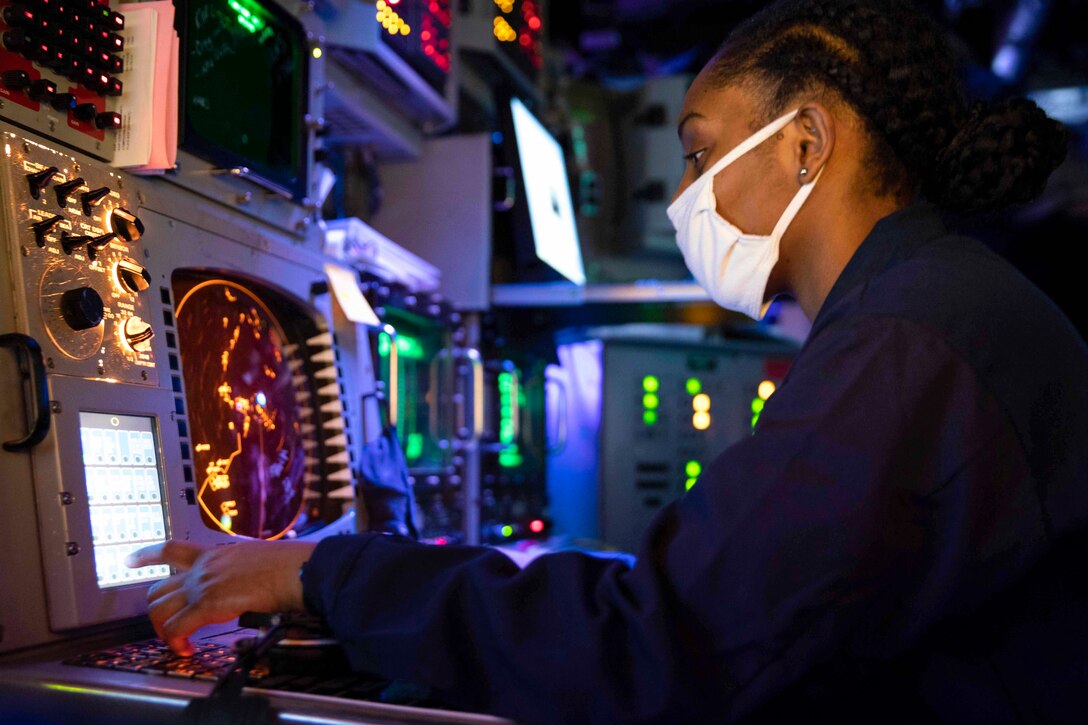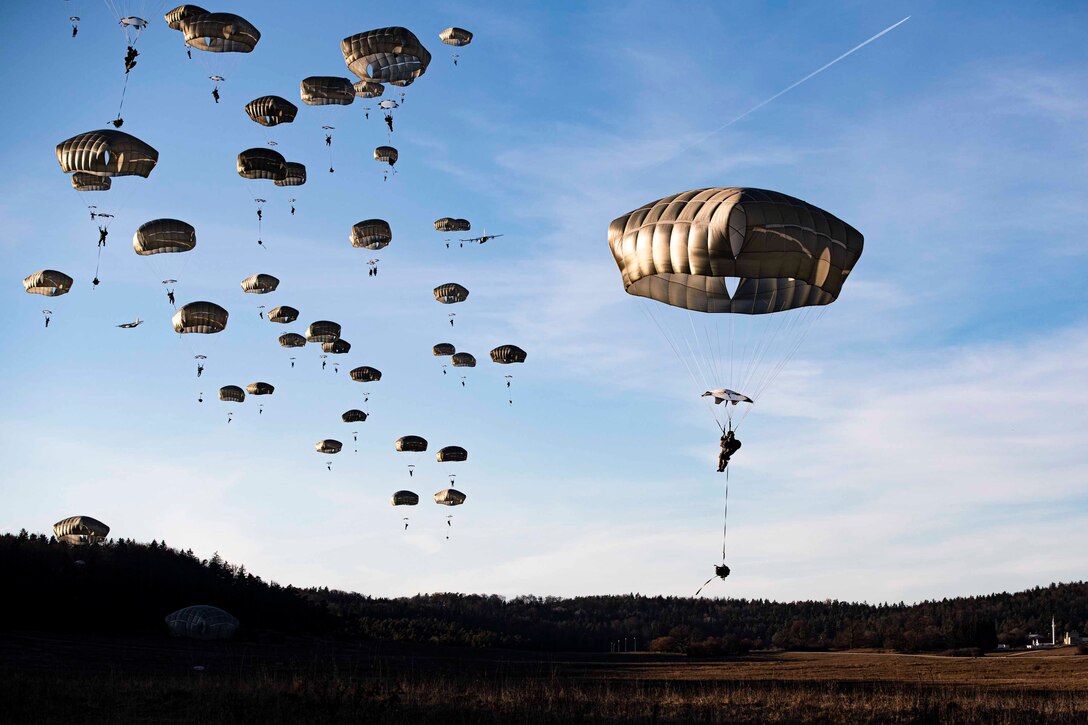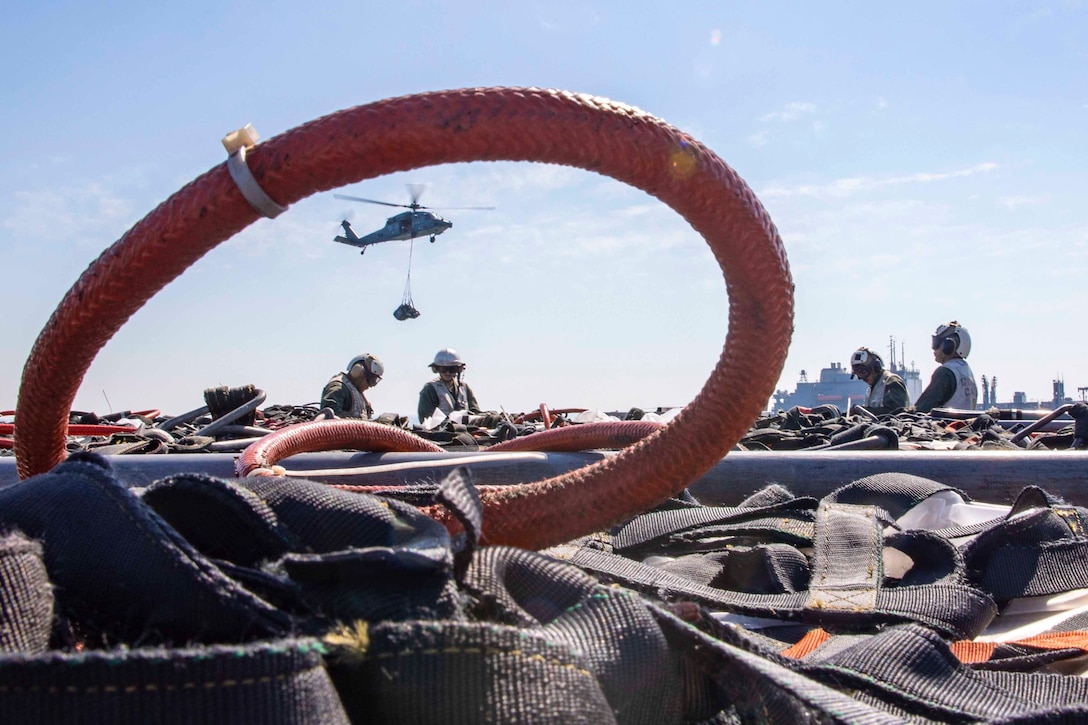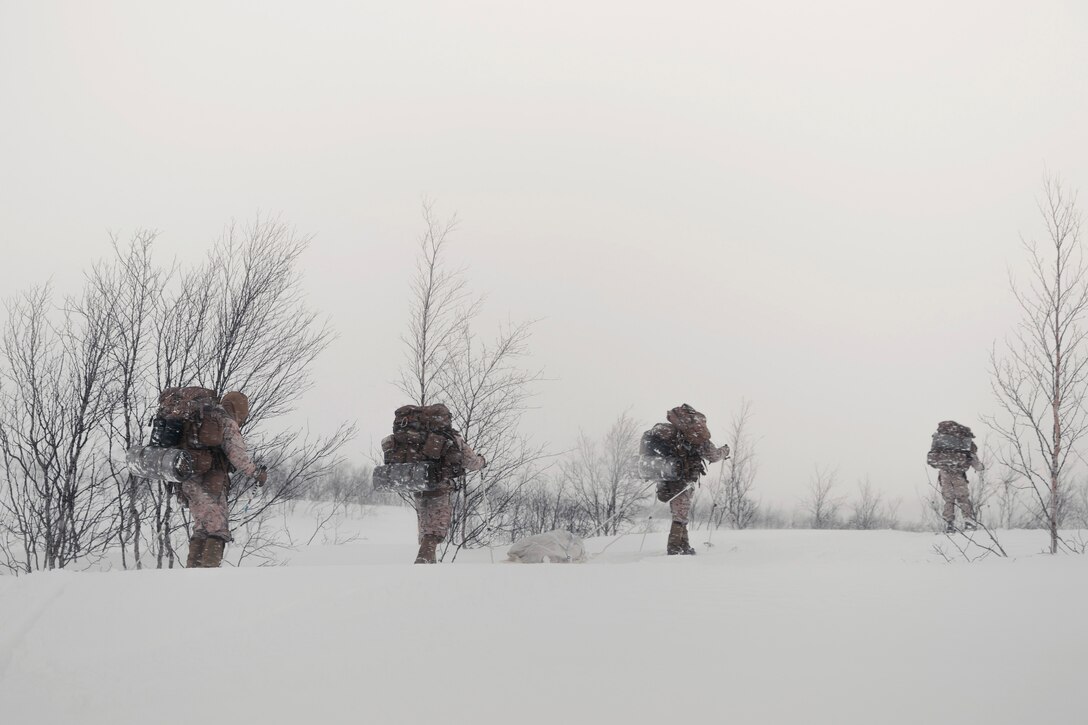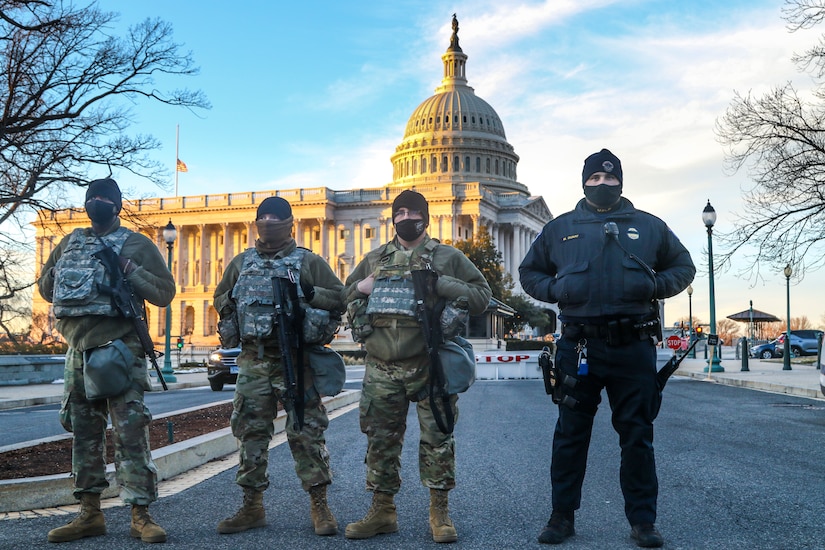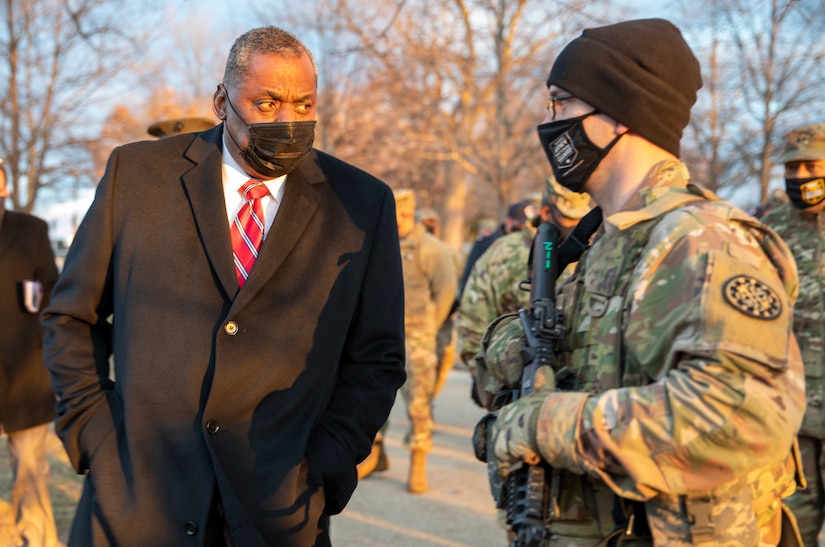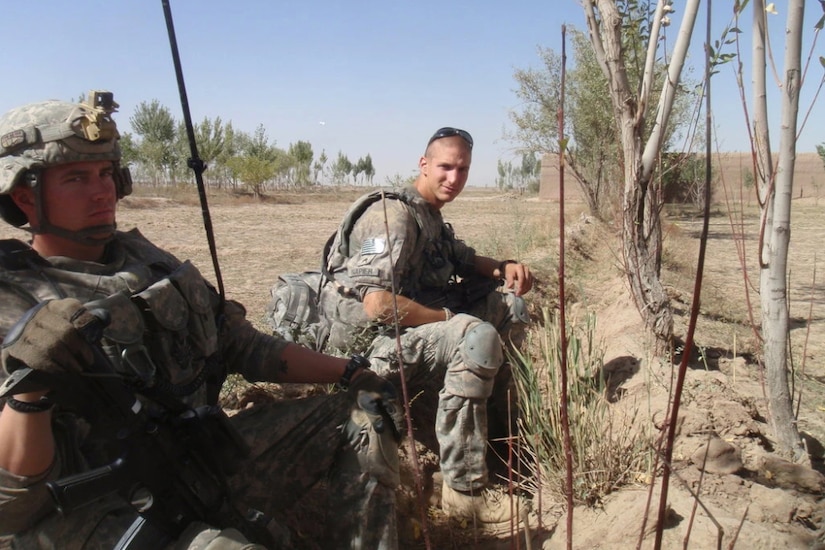Pentagon Press Secretary John F. Kirby
PRESS SECRETARY JOHN F. KIRBY: Afternoon.
Q: Afternoon.
MR. KIRBY: No opening statement so we'll just get right to it. Lita, I think you're first.
Q: Sorry, I was trying to unmute. John, I'm wondering if you can
perhaps update us on the Seoul agreement in any way. Do you have any
sense when, if that's going to be signed or what, if any costs that may
have been agreed to?
MR. KIRBY: The full agreement -- Lita, are you talking about the National Guard extension request?
Q: No, no. Seoul -- look, I'm sorry, Korea.
MR. KIRBY: No, I don't have an update for you on that. I would
refer you to our State Department colleagues. That is a State
Department lead. Obviously we share their pleasure at the knowledge
that they were able to come to conclusion on that but I don't have
details to share with you today.
Q: OK. And just -- could I have a follow up?
MR. KIRBY: Of course.
Q: Yes, and then -- and secondly then, also on the National Guard, can you update us on where that is now?
MR. KIRBY: I can tell you that, again, there is an official formal
request here in the building that's -- that's working its way up to the
Secretary. As I understand it; the analysis behind that request for
assistance has been completed and I would expect the Secretary to -- be
able to look at that analysis and make a decision very, very soon. I
don't want to get ahead of his -- of his decision-making process, but
when we have something we can announce and speak to, we certainly will.
Q: Thank you.
MR. KIRBY: In the room -- Dan?
Q: Admiral Davidson today in his testimony -- he said that the
Chinese nuclear stockpile, if it quadrupled in the next decade, would
result a overmatch with the U.S. nuclear arsenal. Does the Defense
Department believe that is a serious possibility? That China could
quadruple it's stockpile in ten years?
MR. KIRBY: Well, without getting into specific numbers, we clearly
believe that the PRC is pursuing a nuclear triad capability, increasing
their delivery options, and they're working to improve the survivability
of its forces. We also believe that they may seek to develop nuclear
strength commensurate with a great power. Left unchecked, the
Department believes the PRC's nuclear arsenal could grow commensurately
with its regional ambitions, but I won't go into more detail than that.
Q: And then just to switch topics slightly, is there anything
further you have to say about who is responsible or who is likely
responsible for the rocket attack on al-Asad?
MR. KIRBY: As far as I know, we're still working our way through
that and I don't have final attribution to be able to speak to today.
Yes, go ahead.
Q: Hi, John, thanks for doing this. What's the Pentagon's analysis
of the recent Polish army exercise called Zima20, where the Russian
forces took Warsaw -- Russian forces took Warsaw in five days. That, of
course, is quicker than the Nazis took it in World War II. Has this
changed the Pentagon's outlook on how it's going to rotate forces into
Poland or any permanent facilities of U.S. forces in -- and what does it
say about -- of Poland as a NATO ally? Thank.
MR. KIRBY: I don't have any specifics about this particular
exercise, we can try to get you better information, I just wasn't
tracking this specific exercise. Obviously we consider Poland a
terrific ally. We also recognize the importance of improving national
security and military readiness in that part of Europe, and I think you
will see that continue.
I don't think I have anything specific, nor would I, to talk to in
terms of rotational developments going forward. I mean, you've seen us
do this in the past, I know of no changes to that training regimen, and I
also would just point you to the global posture review that the
Secretary is conducting which we expect to be complete mid-summer, which
may help inform the process of training events and posture specifically
related to Poland coming up in the future.
Q: OK. Thank you.
MR. KIRBY: You're welcome. Sylvie? Sylvie? You there?
Q: Yes. Yes, I am here. I thought you heard me, but do you hear me now?
MR. KIRBY: I hear you.
Q: OK. I -- you said there is no decision yet on the National
Guard, but I understand that some people are writing that the decision
has been actually taken and it's yes. Can you explain the situation and
what is exactly the -- the threat?
MR. KIRBY: I have long given up trying to explain what you guys end
up writing every day and where you get it from. I'm -- I could tell you
that there -- that the secretary hasn't signed off on the -- on the
request for assistance yet. And if and when that changes, I'll be sure
to let you know.
But I can't -- I can't speak to what you guys are reporting. And as
for the threat -- so we -- we talked about this. You know I'm loathe to
get into details of threat analysis anywhere in the world, certainly
here at home.
It's obviously different here -- here at home than it would be for
forces overseas, of course. It's a domestic threat that we're talking
about, which means that the information and the intelligence comes from
domestic law enforcement agencies and I would you point you to them to
speak to it more than me.
The other thing that I said the other day and I think it's important
to remember is that the Guard presence on the Hill, while certainly
there to address a requirement that is based on law enforcement’s
concerns, is also there to help bolster and support the Capitol Police
and -- and their capabilities, which may not be at the level where it
needs to be, given the fact that we're in sort of a new environment in
this country.
So it's -- it's -- it's not just about a threat assessment. It's
about assisting and supporting capabilities that the Capitol Police may
now lack and may need to look at improving on their own -- in their own
sense.
And I think that, again, without speaking to the Secretary's decision
here, that I think that's largely what was behind the extension request
was -- was -- was also a continued enabling support that the Guard can
bring to make up for gaps in Capitol Police capabilities, at least in
the short term.
OK, here in the room, Abraham.
Q: Thank you. John, turning to the -- Admiral Davidson's talk
today, testimony before Congress. Does -- how does the Secretary view
his budget requests? As you heard there was -- there would have to be
some shifting within the Department of Defense in order to honor those
requests in full.
And how does the Secretary assess? Does he agree with Admiral
Davidson's asks and does he believe that all those things are necessary
in terms of containing China and then can you also talk about his
upcoming trip yet?
MR. KIRBY: Don't have any travel to speak to today. As for the
Pacific Deterrence Initiative, I think I mentioned this the other day;
the Department is developing what we call the PDI in fiscal year '22.
It's -- that development will be nested into the budget process,
informed by the budget process, to fund key investments that will
maintain a credible deterrent in the Indo-Pacific and reassure our
allies and partners as well as reducing operational risk. And I'm not
going to get ahead of budget decisions going forward.
Q: If you can't mention the trip yet, can you talk about the
importance of building regional partners and allies in Indo-Pacific?
MR. KIRBY: Well, and the Secretary -- let me try this again, this
time with my tongue. The Secretary has spoken a lot about the
importance of the Indo-Pacific region and the importance of making sure
that the Department is prepared to -- to meet the pacing challenge that
is China with operational concepts and plans and capabilities that
enhance our competitive edge.
And while I won't speak to travel that hasn't been announced, I think
you will continue to see this Department and the secretary put a lot of
effort into making sure that we're postured properly in the
Indo-Pacific and that we are properly respecting, utilizing and
empowering our alliances and partnerships in that part of the world.
Five our seven treaty alliances are in the Indo-Pacific region and we take that very seriously.
Q: Thank you.
MR. KIRBY: You're welcome. Lucas?
Q: John, in the tweets --
MR. KIRBY: Does this mean you're not going to get the last question? Are you taking your shot now?
Q: We'll see.
MR. KIRBY: Yes, we'll see. I know what that means.
Q: In a tweet, Dr. Colin Kahl called the Republican Party, quote, the party of ethnic cleansing. Does Secretary Austin agree?
MR. KIRBY: I think the -- Mr. Kahl also spoke pretty eloquently
about his Twitter habits in his hearing and -- and I think made -- made
clear, you know, that his respect for members of Congress of both
parties and spoke to his Twitter activity. And I think I'll leave it
there.
The Secretary looks forward to having Dr. Kahl installed as the under
secretary of defense for policy. He urges the Senate to -- to give him
a vote so we can get him on board. It's a key job in this -- in this
building. It's a -- it's a critical job in the building to make sure
that, as the secretary has said, we have policy that's matched to the
will of the American people and strategy and resources that then can
inflow from that policy.
And Colin Kahl is exactly the right individual to help us lead that
policy making effort. The secretary, again, looks forward to the
confirmation process concluding with a vote for Dr. Kahl and getting him
onboard as soon as possible.
Q: Politico is reporting that the secretary reached out to Senator
Joe Manchin to urge him to vote yes on Dr. Kahl, is that true?
MR. KIRBY: The Secretary is planning to have a conversation with
Senator Manchin today. I'm not going to, as I would never from this
podium, talk about the details of the conversations between the
Secretary and individual members of Congress.
Q: And would a tweet like this get flagged as extremist behavior in today's Department of Defense.
MR. KIRBY: Come on, Lucas. I -- I -- I think when we're talking
about extremist ideology here in the building and in the context of
that, I think you know well what we're talking about. And we're talking
about white supremacist, extremist ideology that is -- and gang related
extremist ideology that is prejudicial to good order and discipline and
can lead to and inspire actual criminal acts against our teammates
inside the Department of Defense.
Q: What's the count now -- I'm sorry. Follow on real quick,
please. What's the count now of how many positions are filled? You
often give us a --
MR. KIRBY: Yes, well -- you know I don't think I've got that. We'll
take that one. That's an easy one to get back to you on. I think I
gave a read out yesterday and I don't think it changed from yesterday.
Q: But there's like -- they're still filling some positions but as
opposed to the nominated positions as opposed to the other key positions
right?
MR. KIRBY: Yes, let me get you a better breakdown. I don't have it
with me right now. Every week we onboard more. We just -- I think I
just announced another four or five yesterday. I just don't have it
front of me but we can get that for you, that's -- that's no problem.
Let's see, Lara from Politico.
Q: Hi, John. Thanks for doing this. I wanted to ask you about the
rest of the DOD nominations. It seems like it's taking a really long
time and, umm, for the president is behind. Some of his predecessors on
naming people to key DOD roles? So can you talk about when we might
see those nominations, particularly for service secretaries and under
secretaries and what the delay is?
MR. KIRBY: Lara, I think I'm going to take issue with the idea of
delay. I mean these are -- these are important decisions. And I think
nobody wants to rush to. Clearly it's the president's prerogative as
commander-in-chief to nominate these individuals and I would not get
ahead of his decision-making process or ahead of any recommendations
that the secretary of defense might be making with respect to those
nominations.
It is clearly something that the secretary has been working on and
consulting on and feels completely free to offer his recommendations.
But I -- I don't know that I would agree there's a delay.
We're -- we're in week six here of the new administration, and we
have been filling a lot of the positions. Again, we've been reading
them out to you almost -- well, certainly, every week, if not every --
every day.
But these are -- you know, when you're talking about some of the jobs
I think you're referring to, some of the -- the Senate-confirmed jobs, I
mean, these are big jobs with big responsibilities. And it's -- it's
more important that we get it right, and that we've properly informed
the process so the -- the president can make sure he's getting it right
and feel comfortable that he's getting it right, than it is to do it,
you know, against some sort of artificial timeline.
Q: Are there any particular problem areas or areas of disagreement
that we might attribute this delay to? Because I -- I am going to call
it a delay because it is -- this president is behind his predecessors,
including President Trump, in at least naming these people
(inaudible)...
MR. KIRBY: Well, again -- again, Lara, I think, you know, it's --
lining it up against a previous administration, that's sort of an
artificial schedule, and we're not going to be beholden to ourselves to a
schedule set by a previous administration. So I -- I -- again, I push
back on your use of the word "delay". And as for problems, I'm -- I'm
certainly not aware of any, and if I was, I certainly wouldn't speak to
it at the podium.
Tony?
Q: One follow-up on the Manchin meeting. Is the Secretary meeting
with other Democratic senators on the staff -- on the Senate Armed
Services Committee besides Manchin, or just Manchin, the concern that
he's wavering in his support? And I had a follow-up on a different
congressional (inaudible).
MR. KIRBY: I don't know of any other discussions, Tony. I'm not aware of any others.
Q: Is he -- is he concerned that Manchin may (inaudible)...
MR. KIRBY: I won't get into the parameters and the -- and the
specifics of the -- of a conversation that hasn't even happened yet. I
just won't -- I won't -- I won't do that.
Q: OK. One thing that did happen on Friday -- the Senate -- the
House Armed Services Committee Chairman Adam Smith took several shots at
your keystone program, the F-35.
MR. KIRBY: Yeah.
Q: He said he wanted -- he didn't want to start -- keep pouring
money down a rat hole. Rhetoric aside, what's the -- what's the
Pentagon's response to his rather strident attack?
MR. KIRBY: Well, what I can say is -- and you know this probably
better than anybody in the room, Tony. The F-35 remains the premier air
system of choice for three of the Armed Forces, seven international
partners, six foreign military sales customers. It routinely
demonstrates high-end capabilities at the hands of our joint and
international warfighters, and it's performing in combat operations from
land and from the sea.
The department will continue the low-rate initial production at the
planned rate that we're currently seeing, as directed by congressional
authorization and appropriation, and we look forward to working with
Chairman Smith and the committee as we work forward to address the needs
of the department and the specific advance of this program.
Q: Well, I need to ask you, what does your tip sheet tell you about
the problems the program is having though, too? It -- it's having a
number (inaudible)...
MR. KIRBY: This is not a tip sheet. This is just helping me answer your question.
(LAUGHTER)
Q: Well, (inaudible) challenging issues with sustainment, flat cost per flying hour, avionics software delays.
MR. KIRBY: I don't have that detail in front of me. I mean,
obviously, we're -- we're mindful of the complexities of this particular
program. Development of an updated schedule that addresses all the
previous causes of schedule overruns has got to be informed by a
detailed understanding of the -- of the path ahead and associated
timelines. We are continuing an -- an analysis here, and we'll deliver
the proposed acquisition production baseline revision when it's
complete.
Q: You dismiss the view that it's a rat -- pouring money down a rat hole, then. You think that's over the top rhetoric?
MR. KIRBY: I think I was pretty clear in the degree to which the department continues to stand by the F-35.
Q: Fair enough. Thanks.
MR. KIRBY: Yeah.
OK, Jeff, Task & Purpose?
Q: Thank you. Is there any possibility that the National Guard mission in the Capitol will become an enduring mission?
MR. KIRBY: You know, Jeff, I don't think anybody can answer that
question right now. Right now, we're really dealing with a specific
request for assistance for an additional couple of months extension at a
reduced number from what we're seeing now.
I think there's 5,100 roughly, on the Hill -- and this is an
extension for a couple of months of a reduced number from that. And
that's where our focus right now is, Jeff. So I'm in no position to
speculate beyond that.
Q: Thank you, but it sounds like you're leaving the possibility open
that it could be an enduring mission. Am I hearing you correctly?
MR. KIRBY: I think you might be over-hearing me. I'm saying what
we're focused on is this focus request -- that's where the focus is
right now, and I just wouldn't hypothesize about this going forward.
I mean, look, as I said in my answer to Sylvie, part of the calculus
here is in helping supplant – supplant-- helping fill some of the gaps
in Capitol Police capabilities on the -- on Capitol Hill and at the
Capitol complex.
So part of this is obviously valid requirements to have in there, but
also to help backfill some of these capabilities. As they look at
themselves as an institution and what they need to do for their
long-term future.
OK. Back there.
Q: Thank you, John. The Republic of Korea and the United States
alliance is important to counter China and North Korea -- though you
know that already.
MR. KIRBY: Then why did you feel compelled to say it?
Q: Because it is my (inaudible).
MR. KIRBY: OK.
Q: Do you think two plus two diplomatic and defense ministerial
meeting is necessary strengthen the U.S. and ROK's alliance, do you
think ...
MR. KIRBY: That is a heck of a backdoor to try to open to talking about rumors of a trip to the region.
Q: (Inaudible) not only that one...
MR. KIRBY: Yeah, but I know what you were doing. I don't have any travel to speak to you right now ...
Q: I didn't ask about it.
MR. KIRBY: I know you didn't, but that's what you wanted to ask about.
Q: Yeah.
MR. KIRBY: Yes, I know. Look, without getting in to specifics on
two plus two, the -- we've said before this alliance is the lynch pin of
security in the region. We believe that, the secretary believes that
and we look forward to furthering alliance objectives and goals as best
we can.
And you've heard the secretary talk about this in numerous venues
about the importance of strengthening and revitalizing our alliances and
partnerships around the world. And I think you'll see him continue to
make good on that promise.
Q: All right. Thank you.
Q: Today when we heard from Admiral Davidson as well about China,
and the folks from this podium and many other platforms (inaudible) also
had defined challenging China as a centerpiece of his policy.
And on the other hand we see that China is currently control --
controls one of the largest port in Israel. And then recently Israel
refused to -- refused the U.S. request to inspect that Chinese port in
Haifa. How are you going to challenge China, and how are you going to
handle this issue with Israel given -- ?
MR. KIRBY: I don't have any details on the issue you're talking
about with respect to Haifa. The Secretary has said, and said it in
that strategic document you saw him lay out that the Department
perceives China as the chief pacing challenge.
And we stood up a China task force, Dr. Ratner was down here talking
to you about that a couple of weeks ago -- to help him flesh out how
the department is going to better address that challenge. Here at DOD,
with respect to operational concepts, and policies, and force posture
thinking.
And so we're going to let that work continue and we're going to
continue to focus on that part of the world as we should. But I don't
have anything specific with respect to your question on Haifa.
Q: The other question (inaudible) Greek media is reporting that the
U.S. has donated a bunch of military equipment to Greece. Do you have
any detail on that? Can you confirm it?
MR. KIRBY: I don't. I don't have any -- first I've heard of this. I
will take the question, but it's likely that you're probably -- if
there's anything to it, you'll probably get a better answer out of our
State Department colleagues, but I just don't know anything about that.
Let's see, Peter Martin, Bloomberg.
Q: Yes, hi there, John. We reported earlier that India plans to buy
30 armed drones from the U.S., I wondered if you have any comments on
that or any broader comments on U.S. military ties with India?
MR. KIRBY: Sorry, missed it. You -- that India what?
Q: India plans to buy 30 armed drones from the U.S.?
MR. KIRBY: That's a question put to the Indian Ministry of Defense.
I wouldn't be able to comment on that one way or the other.
Yes?
Q: Thank you. I want to ask you about the U.S. Japan relation.
March 11 will mark the tenth anniversary the very disruptive earthquake
and tsunami hitting Japan in 2011. The U.S. forces provided
humanitarian support ...
MR. KIRBY: Yes.
Q: ... and disaster support to the Japanese people. And those
efforts called Operation Friendship. Do you think that Operation
Friendship demonstrates this strong alliance with Japan? Do you have
any comment about the U.S. efforts to help Japan to become (inaudible)?
MR. KIRBY: To help Japan what?
Q: To help Japan recover from (inaudible)?
MR. KIRBY: Recover. I remember that. And I remember visiting Japan
not long after and flying in a helicopter over some of the devastated
areas. It was quite something to see -- quite stunning. And the United
States was proud to be able to help the Japanese people begin to
recover from that devastation. And I suspect that devastation is still
being felt by many of them in those areas hard hit. And certainly it's a
testament to the strength of our alliance.
But more importantly I think it's a testament to the strength of our
friendship with the Japanese people and how much they mean to us. And
goodness knows nobody wants to be called in to have to do that again, or
see that happen to anybody again. But I hope that the Japanese people
will always know that the United States military will be ready, able,
and willing to assist should the need recur.
OK. Idrees.
Q: Hey, John. Just going back to Colin Kahl's nomination. Whether
he passes through the Senate or not, is the Secretary concerned about
the lack of bipartisan support he's been getting at least in the
Committee level, and then I have an unrelated follow-up.
MR. KIRBY: Well we're certainly mindful of the concerns that some
members have expressed. We value the oversight, the advise and consent
responsibility of -- of the committee, and the Secretary looks forward
to continue to work with the committee, and to -- to help address any of
the concerns that they might have. I will go back to what I mentioned
to Lucas, this is a critically important position here at the
department, and Dr. Kahl is eminently qualified to -- to fill it.
The secretary fully supports his nomination and wants him installed
as soon as possible, and again, we -- we're -- we're grateful that the
committee scheduled the hearing and conducted it. Again, mindful of the
concerns expressed by some of the members, and we look forward to
working with them through the confirmation process, and to seeing Dr.
Kahl get voted in and get installed here at the Pentagon.
Oren.
Q: On military vaccinations, I was wondering if there was an update
of the opt-in rate or is that holding about two-thirds, and is there a
number on opt-in rate for officers versus enlisted?
MR. KIRBY: Oren, you know, the -- the -- again, the two thirds that
-- that keeps getting cited was anecdotal, you know, and we're not using
two-thirds as a -- what did you call it? An opt-in rate? What I can
tell you is that we've had a million and a half doses delivered to DOD
and we've administered 1.3 million. So, about almost a 90 percent rate
of delivery, so these vaccines are not waiting on shelves very long
before we're finding arms to put them in.
And it's important to remember that we're still operating largely on
the force through tier 1A and tier 1B, these are front -- frontline
healthcare workers, deploying and deployed troops, I mean, the bulk of
the workforce hasn't even been given an, you know, an option to -- to
take the vaccine.
So, we're -- we're comfortable that, you know, we're not waiting
around, as we get vaccines, they're going into arms. And that, you
know, as the Secretary said, we certainly, have to continue to press on
providing context and information to everybody in the workforce so that
they understand that these vaccines are safe and effective. OK.
Jeff, Voice of America.
Q: Hi, thanks very much for doing this. Two questions, one on the
National Guard. Have any other cities been putting in requests for
National Guard support, kind of like what we're seeing the U.S.
Capitol? There have been concerns and what if anything is being done to
make the information sharing -- the threat information sharing easier
so that the Defense Department has a better understanding of what the
requirements are as they come in?
Second question, any reaction from the Pentagon to Russia reportedly
extending invitations to key parties in Afghanistan for a three-day
conference on March 18th, especially given how in the past the Pentagon
has said Russia's provided arms to the Taliban, and, of course, there
was the -- the allegations of the bounties.
MR. KIRBY: On your second question, I'd point you to my colleague at
the State Department, that's really more for them to speak to, that's
not -- that -- that's clearly in the diplomatic lane. I might have
gotten confused on your first question, were you talking about National
Guard support to COVID vaccination efforts or to physical security
efforts? I'm sorry, I got -- I got a little...
Q: No, no worries, I meant with the mission to the U.S. Capitol and,
of course, there were concerns about security at other points -- other
U.S. capitols earlier on this year. So, in terms of a security mission,
any -- anything that's been done? Any more requests that have come in
from any places other than the U.S. Capitol and Capitol Police? And is
there anything being done to facilitate the sharing of threat
information?
MR. KIRBY: There's no other request for assistance that I'm aware of
for National Guard assistance. As you know, the -- under Title 32 with
this -- which this mission is under that's -- that's, you know, driven
by the governors and their authorities over the National Guard.
So, if there are -- if there would be deemed similar needs in cities
and towns across the country, it would really be the governors of those
states to make that decision and to -- and to -- and to deploy those
forces. So, it's not -- it -- it -- it wouldn't be uncommon for us not
to have visibility on that here at the Pentagon.
We do have, of course, visibility over the Capitol complex situation
because of the unique command and control requirements of the DC
National Guard up through the secretary of the Army. And again, the
only request that we're tracking is the one I've spoken to, which is --
is up for the secretary's decision here relatively soon. So, I -- I
don't have any more updates on that.
David Martin, CBS.
Q: General McKenzie did an interview with Al Jazeera in which he's
quoted as saying "we did a number of things to help defend the Kingdom
against this latest Houthi missile and drone attack, that we have helped
them a lot over the past weeks." So, what is he talking about? And
specifically, did the U.S. systems in -- in Saudi Arabia engage any of
those Houthi missiles?
MR. KIRBY: I would point you to General McKenzie for more detail
about what he's referring to there, and again, I'm loathe to get into
operational details here too much from this podium. The only thing I'd
add, David, is a -- is what we've said before, and we -- we have
security commitments with Saudi Arabia to help them defend their
territory against attacks, which have as we've seen as recently as the
weekend continue to happen. We take those responsibilities seriously
but as for the details, I'd point you back to General McKenzie.
In the room, last one.
Q: Does the secretary believe that one’s Twitter feed is a potential liability?
MR. KIRBY: The secretary fully respects and supports freedom of
speech, and he recognizes that Twitter is one way to exercise one's
freedom of speech.
Q: You never answered my question there, John...
MR. KIRBY: Yes I did.
Q: Does the secretary believe that the GOP is the party of quote, "ethnic cleansing," as Dr. Kahl said...
MR. KIRBY: Of course he doesn't, of course, he doesn't, no. I -- I
didn't think that that needed to be said so clearly. The secretary
looks forward to working with the committee in a bipartisan way to see
Dr. Kahl get confirmed, and get installed at the Pentagon.
Thanks everybody, have a great day.
